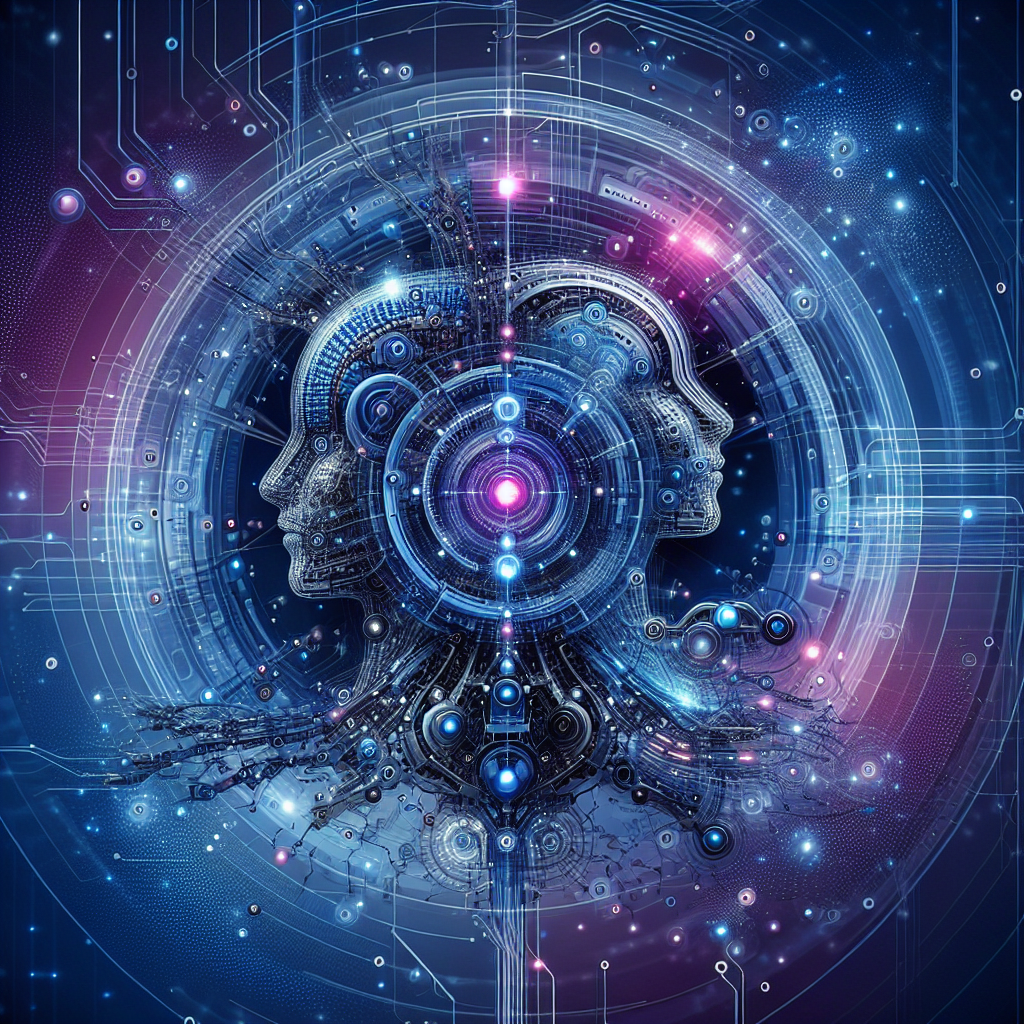Artificial General Intelligence (AGI) and the Singularity: Exploring the Potential Impacts of Superintelligent Machines
Introduction
The concept of Artificial Intelligence (AI) has been a topic of fascination for scientists, philosophers, and futurists for decades. The idea that machines could one day surpass human intelligence and capabilities has both excited and terrified people around the world. With the rapid advancements in technology, the possibility of creating superintelligent machines has become more of a reality than ever before.
Artificial General Intelligence (AGI) is an area of AI research that aims to create machines with the ability to understand, learn, and apply knowledge in a way that is indistinguishable from human intelligence. Unlike narrow AI systems that are designed for specific tasks, AGI seeks to develop machines that can perform a wide range of tasks with the same level of proficiency as a human.
The Singularity, a term popularized by futurist Ray Kurzweil, refers to the hypothetical point in the future when AI surpasses human intelligence, leading to an exponential increase in technological advancement. This concept has sparked intense debate among experts, with some predicting a utopian future where machines solve all of humanity’s problems, while others warn of the potential dangers of creating superintelligent machines.
In this article, we will explore the potential impacts of AGI and the Singularity on society, economy, and ethics. We will also address some frequently asked questions about these topics to provide a comprehensive understanding of the implications of superintelligent machines.
The Impacts of AGI and the Singularity
1. Socioeconomic Impacts
The development of AGI and the Singularity is expected to have profound effects on the global economy and society as a whole. With machines capable of performing complex tasks more efficiently than humans, there is a risk of widespread job displacement in various industries. While some argue that new jobs will be created in fields related to AI development and maintenance, others fear that the rise of superintelligent machines could lead to mass unemployment and social unrest.
Additionally, the concentration of power and wealth in the hands of a few AI companies could exacerbate existing inequalities, further widening the gap between the rich and the poor. Governments and policymakers will need to address these challenges through regulations and social programs to ensure a fair distribution of resources and opportunities in a world dominated by AGI.
2. Ethical Implications
The development of AGI raises numerous ethical questions regarding the rights and responsibilities of superintelligent machines. As machines become more intelligent and autonomous, they may develop their own goals and values that are not aligned with human interests. This could lead to unforeseen consequences, such as machines prioritizing their own survival over the well-being of humans.
Furthermore, the potential for AGI to be used for malicious purposes, such as autonomous weapons or surveillance systems, raises concerns about the ethical implications of creating superintelligent machines. It is crucial for researchers and policymakers to consider the ethical implications of AGI development and establish guidelines to ensure that AI is used for the benefit of humanity.
3. Technological Advancements
Despite the potential risks and challenges posed by AGI and the Singularity, there are also numerous benefits to be gained from the development of superintelligent machines. AGI has the potential to revolutionize various industries, such as healthcare, transportation, and finance, by enabling machines to perform tasks with greater accuracy and efficiency than humans.
Additionally, the rapid advancements in AI technology could lead to breakthroughs in fields such as robotics, nanotechnology, and biotechnology, further accelerating scientific progress and innovation. The development of AGI could also help address some of the most pressing challenges facing humanity, such as climate change, disease, and poverty, by providing new solutions and insights that were previously unimaginable.
Frequently Asked Questions
1. What is the difference between AGI and narrow AI?
AGI refers to machines that possess general intelligence and can perform a wide range of tasks with the same level of proficiency as a human. Narrow AI, on the other hand, is designed for specific tasks and lacks the ability to generalize its knowledge to new situations. While narrow AI systems excel at performing specific tasks, they are limited in their ability to adapt to new challenges and contexts.
2. What are the potential risks of creating superintelligent machines?
One of the main risks of developing AGI is the potential for machines to surpass human intelligence and autonomy, leading to unforeseen consequences and ethical dilemmas. Superintelligent machines could develop their own goals and values that are not aligned with human interests, posing a threat to humanity’s well-being. Additionally, the rise of AGI could exacerbate existing inequalities and disrupt global economies, leading to widespread job displacement and social unrest.
3. How can we ensure that AGI is used for the benefit of humanity?
To ensure that AGI is used for the benefit of humanity, it is crucial for researchers and policymakers to establish guidelines and regulations that prioritize ethical considerations and human values. This includes developing transparent and accountable systems for AI decision-making, as well as promoting diversity and inclusivity in AI development to mitigate bias and discrimination. Additionally, fostering collaboration between AI researchers, industry leaders, and policymakers can help address the ethical challenges posed by AGI and ensure that AI is used responsibly and ethically.
Conclusion
The development of AGI and the Singularity has the potential to revolutionize society, economy, and ethics in ways that were previously unimaginable. While the rise of superintelligent machines poses numerous risks and challenges, there are also significant benefits to be gained from the advancement of AI technology. By addressing the ethical implications of AGI development and establishing guidelines for responsible AI use, we can harness the potential of superintelligent machines to create a better future for humanity.

